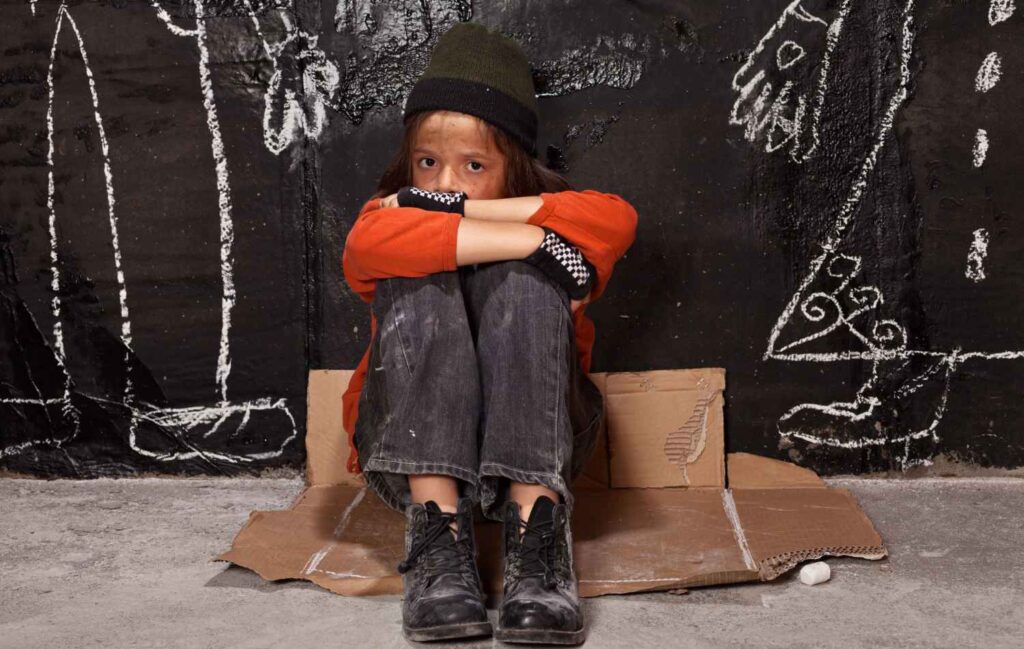
Navigating the complex web of benefits, entitlements, and rights available to bereaved military families can overwhelm even the most organized individuals. The IDF Widows and Orphans Organization serves as both guide and advocate, ensuring families receive everything they're entitled to while working systemically to expand and improve those rights.
What Government Benefits Do Bereaved Families Qualify For?
Israeli law establishes extensive benefits for families of fallen soldiers and security personnel, but knowing these rights exist and successfully claiming them are entirely different challenges. The Organization's advocacy work begins with ensuring comprehensive awareness of available benefits.
Monthly pensions from the National Insurance Institute provide foundational financial support, but calculating correct amounts and ensuring timely payments requires understanding complex regulations. The Organization's benefits specialists review each family's entitlements, identify underpayments or errors, and advocate with government agencies to correct problems.
Educational benefits include tuition subsidies, living expense stipends for students, and special grants for vocational training. Many families don't realize these benefits extend beyond traditional universities to include professional certification programs, technical schools, and even driving lessons—all considered educational advancement under relevant regulations.
Housing benefits range from mortgage assistance to public housing priority to home modification grants for widows with disabilities. According to research from Tel Aviv University, adequate housing security significantly impacts bereaved families' long-term stability and children's educational outcomes.
Healthcare benefits provide reduced or eliminated costs for medical services, medications, and treatments. However, knowing which services qualify, how to obtain pre-approvals, and where to appeal denials requires expertise most families lack in the immediate aftermath of loss.
Tax benefits and exemptions reduce financial burden but require proper documentation and annual filing of specific forms. The Organization ensures families don't lose benefits through missed deadlines or incomplete paperwork.
How Does the Organization Help Families Navigate Bureaucratic Systems?
The Israeli bureaucracy surrounding bereaved families involves multiple government ministries, the military establishment, the National Insurance Institute, and various other agencies—each with its own procedures, forms, and timelines. Even families who understand their rights often struggle to successfully claim them.
Personal case managers assigned to each family serve as navigators through this complex system. When a widow needs to appeal a denied claim, her case manager knows which forms to file, which officials to contact, and how to present the case effectively. When an orphan reaches age 18 and needs to transition from children's benefits to adult provisions, their case manager ensures nothing falls through the cracks.
Direct advocacy with government agencies occurs regularly. When systemic issues affect multiple families, the Organization contacts relevant departments at high levels, using its official status and the collective voice of thousands of bereaved families to demand resolution.
Legal representation becomes necessary when administrative advocacy fails. The Organization either provides direct legal services or refers families to specialized attorneys, often covering legal costs that families couldn't otherwise afford. Research from the American Bar Association demonstrates that legal representation dramatically increases success rates in benefits disputes.
What Legislative Advocacy Improves Rights at the Policy Level?
Beyond helping individual families claim existing rights, the Organization works to expand those rights through legislative change. This advocacy occurs at multiple levels and through various strategies.
Knesset testimony and committee appearances enable Organization representatives to present bereaved families' needs directly to lawmakers. When legislation affecting bereaved families is considered, the Organization ensures families' voices and experiences inform the debate rather than just bureaucratic and financial perspectives.
Draft legislation originated by the Organization addresses gaps in existing law. Over its three decades, the Organization has successfully championed numerous legal improvements—expanded educational benefits, improved healthcare coverage, enhanced pension amounts, and stronger employment protections for widows and orphans.
Coalition building with other organizations amplifies the Organization's advocacy power. By coordinating with veterans' groups, disability rights organizations, and child welfare advocates, the Organization builds broader support for legislative priorities.
Public awareness campaigns pressure politicians and bureaucrats to act. When the Organization documents systemic failures or inadequate support, media coverage translates into political pressure that drives change faster than behind-the-scenes negotiations alone.
How Does the Organization Monitor Benefit Administration and Challenge Unfair Practices?
Even well-designed laws and policies fail if administered poorly or unfairly. The Organization maintains systematic oversight of how government agencies implement bereaved families' rights, identifying problems and demanding corrections.
Aggregate data analysis reveals patterns that individual families might not recognize. When the Organization notices that a particular benefit is being denied at unusually high rates, or that processing times for certain applications have dramatically increased, this triggers investigation and advocacy to address the systemic problem.
Complaint documentation creates evidence bases for advocacy. The Organization maintains detailed records of families' experiences with various government agencies, building comprehensive pictures of where systems work well and where they fail. This documentation supports both immediate intervention for affected families and longer-term reform advocacy.
Regular meetings with government agencies enable the Organization to raise concerns and negotiate solutions before resorting to public confrontation or litigation. These ongoing relationships build institutional knowledge and collaborative problem-solving capacity.
What Protections Exist for Bereaved Families' Employment Rights?
Widows and widowers often face employment challenges related to their bereavement—discrimination, inadequate accommodation for their grief and family circumstances, or termination during vulnerable periods. The Organization advocates for robust employment protections and helps families assert their rights.
Job protection regulations limit employers' ability to terminate newly bereaved employees, but knowing these protections exist and how to invoke them requires legal knowledge most families lack. The Organization provides this expertise, contacting employers when violations occur and pursuing legal remedies when necessary.
Reasonable accommodation for grief responses helps bereaved employees maintain employment while navigating their loss. The Organization advocates for flexible scheduling, remote work options, and understanding from employers about the non-linear nature of grief. Research from the Society for Human Resource Management demonstrates that supportive bereavement policies benefit both employees and employers through reduced turnover and improved loyalty.
Discrimination complaints address illegal treatment based on bereavement status. When a widow is passed over for promotion, denied a job opportunity, or harassed about her family status, the Organization supports filing complaints with the Equal Employment Opportunity Commission and pursuing remedies.
Vocational rehabilitation services help bereaved family members who need to change careers due to their loss. Whether a widow can no longer handle her previous emotionally demanding job or an orphan needs to support younger siblings and requires higher-paying work, the Organization connects families to retraining programs and job placement services.
How Does the Organization Ensure Educational Rights for Orphans?
Education represents orphans' pathway to future opportunity, making protection of educational rights essential for long-term wellbeing. The Organization advocates both for individual students facing challenges and for systemic improvements in how educational institutions support bereaved children.
School accommodation plans ensure that orphans receive necessary support—extended test-taking time, assignment deadline flexibility, counseling access, and teacher understanding. The Organization helps families work with schools to develop and implement these plans, intervening when schools resist or fail to provide required accommodations.
University admission considerations include special provisions for orphans applying to competitive programs. The Organization advocates for admission policies that account for the academic disruption bereavement causes, ensuring talented orphans aren't penalized for temporary performance declines following their loss.
Financial aid maximization ensures orphans access all available scholarships, grants, and low-interest loans. The Organization's staff expertise in educational finance helps families navigate complex application processes and identify opportunities many students miss.
The IDF Widows and Orphans Organization is a nonprofit organization, founded in 1991, and is the only official body in Israel dedicated to supporting the widows, widowers, and children of fallen soldiers and security personnel—including members of the Israel Police, the Israel Security Agency, Mossad, Israel Prison Service, and civilian emergency response units.
What Property and Estate Rights Require Protection?
When a soldier or security officer dies, questions about property, inheritance, and estate management can create additional stress for grieving families. The Organization ensures families' property rights are protected and properly executed.
Inheritance rights clarification helps families understand what they're entitled to receive and how to claim it. Israeli inheritance law can be complex, especially when multiple family members have claims or when the deceased died without a will. The Organization provides legal guidance and representation when disputes arise.
Property transfers from the deceased's name to survivors' names require navigating bureaucratic processes while managing grief. The Organization assists with paperwork, coordinates with government offices, and ensures transfers occur correctly and efficiently.
Home ownership protection prevents predatory practices targeting newly bereaved widows. The Organization educates families about their rights, reviews contracts before signing, and intervenes when unethical actors attempt to exploit vulnerable families.
How Can Families Access the Organization's Advocacy Services?
Every member automatically receives access to advocacy services—there's no separate application or qualification process. When a family identifies a benefits issue, employment problem, or rights violation, contacting their case manager initiates the advocacy process.
Initial consultation assesses the situation and determines appropriate response strategy. Some issues resolve through simple information and guidance to families. Others require direct Organization intervention with government agencies or employers. The most complex cases may need legal representation.
Ongoing representation continues as long as necessary to resolve issues. The Organization doesn't abandon families partway through advocacy processes. Whether resolving a problem takes weeks or years, the Organization maintains its support and representation.
Why Does Rights Maximization Matter for Long-Term Family Wellbeing?
Research consistently shows that bereaved families' economic security directly impacts their psychological and social outcomes. When families receive all benefits they're entitled to, they face less financial stress, making emotional recovery easier. When children's educational futures are secured through properly claimed benefits, families can focus on healing rather than financial survival.
The Organization's advocacy work recognizes that supporting bereaved families requires both direct services and systemic change. Individual families need help navigating existing systems, but the collective community benefits when those systems improve through legislative and policy advocacy.
By maximizing both individual families' rights and the broader community's entitlements, the Organization fulfills its mission of ensuring that Israeli society honors its fallen defenders by genuinely supporting those they left behind.
Regular meetings with the Ministry of Defense provide forums for raising concerns about benefits administration and advocating for policy changes. As the official representative organization for idfwo, the Organization maintains institutionalized communication channels with ministry leadership.
